Filter by

Trees of the brain, roots of the mind
"The human brain is often described as the most complex object in the universe. Tens of billions of nerve cells-tiny tree-like structures--make up a massive network with enormous computational power. In this book, Giorgio Ascoli reveals another aspect of the human brain: the stunning beauty of its cellular form. Doing so, he makes a provocative claim about the mind-brain relationship. If each n…
- Edition
- -
- ISBN/ISSN
- 9780262329026
- Collation
- 1 online resource (xiv, 232 pages) :illustrations
- Series Title
- -
- Call Number
- -
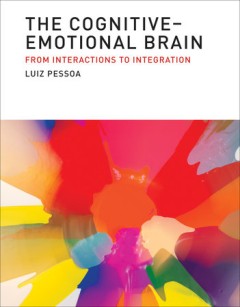
The cognitive-emotional brain: From interactions to integration
The idea that a specific brain circuit constitutes the emotional brain shaped thinking about emotion and the brain for many years. Recent behavioural, neuropsychological, neuroanatomy, and neuroimaging research, however, suggests that emotion interacts with cognition in the brain. In this book, Luiz Pessoa moves beyond the debate over functional specialization, describing the many ways that emo…
- Edition
- -
- ISBN/ISSN
- 9780262314756
- Collation
- 1 online resource (320 pages)
- Series Title
- -
- Call Number
- -
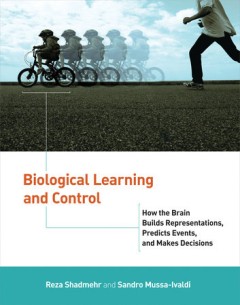
Biological learning and control: How the brain builds representations, predic…
In this work, the authors present a theoretical framework for understanding the regularity of the brain's perceptions, its reactions to sensory stimuli, and its control of movements.OCLC-licensed vendor bibliographic record.
- Edition
- -
- ISBN/ISSN
- 9780262301282
- Collation
- 1 online resource (385 pages) :illustrations.
- Series Title
- -
- Call Number
- -
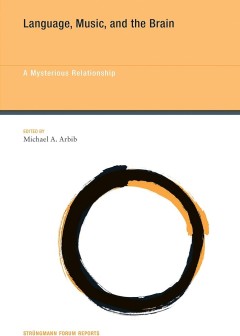
Language, Music, and the Brain: A Mysterious Relationship
Through four key themes, this book explores the relationships between language, music, and the brain and the crosstalk between them: song and dance as a bridge between music and language; multiple levels of structure from brain to behaviour to culture; the semantics of internal and external worlds and the role of emotion; and the evolution and development of language. Specially commissioned exp…
- Edition
- -
- ISBN/ISSN
- 9781461934394
- Collation
- 1 online resource (xiii, 662 pages).
- Series Title
- -
- Call Number
- -
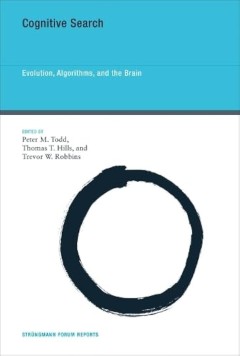
Cognitive Search: Evolution, Algorithms, and the Brain
Over a century ago, William James proposed that people search through memory much as they rummage through a house looking for lost keys. Like other animal species search space, we scour our environments for territory, food, mates, and other goals, including information. We search for items in visual scenes, for historical facts and shopping deals on internet sites, for new friends to add to our…
- Edition
- -
- ISBN/ISSN
- 9780262306003
- Collation
- 1 online resource (xi, 403 pages) :illustrations.
- Series Title
- -
- Call Number
- -
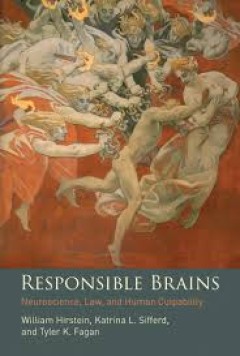
Responsible brains :neuroscience, law, and human culpability
An examination of the relationship between the brain and culpability that offers a comprehensive neuroscientific theory of human responsibility. When we praise, blame, punish, or reward people for their actions, we are holding them responsible for what they have done. Common sense tells us that what makes human beings responsible has to do with their minds and, in particular, the relationship b…
- Edition
- -
- ISBN/ISSN
- 9780262349277
- Collation
- 1 online resource (viii, 292 pages)
- Series Title
- -
- Call Number
- -
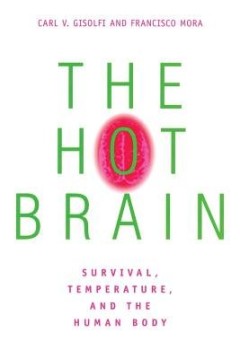
The Hot Brain : Survival, Temperature, and the Human Body
The book traces the story of the brain throughout evolution and shows how the control of body temperature as a survival mechanism was achieved. From the first unicellular life on Earth, living things have had the capacity to sense heat and cold and to avoid extreme temperatures. With the development of a bigger brain and a constant body temperature, mammals were able to change their habitats…
- Edition
- -
- ISBN/ISSN
- 9780262273886
- Collation
- 1 online resource (286 pages)
- Series Title
- -
- Call Number
- 613 GIS h
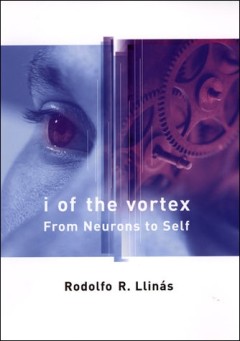
I of the vortex : from neurons to self
"A Bradford book."In I of the Vortex, Rodolfo Llinas, a founding father of modern brain science, presents an original view of the evolution and nature of mind. According to Llinas, the 'mindness state' evolved to allow predictive interactions between mobile creatures and their environment. He illustrates the early evolution of mind through a primitive animal called the 'sea squirt.' The mobile …
- Edition
- 1st ed.
- ISBN/ISSN
- 9780262278454
- Collation
- 1 online resource (x, 302 pages) : illustrations
- Series Title
- -
- Call Number
- 100 LLI i
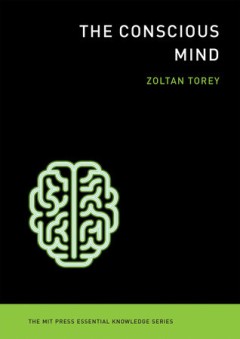
The conscious mind
An account of the emergence of the mind: how the brain acquired self-awareness, functional autonomy, the ability to think, and the power of speech."How did the human mind emerge from the collection of neurons that makes up the brain? How did the brain acquire self-awareness, functional autonomy, language, and the ability to think, to understand itself and the world? In this volume in the Essent…
- Edition
- -
- ISBN/ISSN
- 9780262319300
- Collation
- 1 online resource (xii, 191 pages).
- Series Title
- -
- Call Number
- -
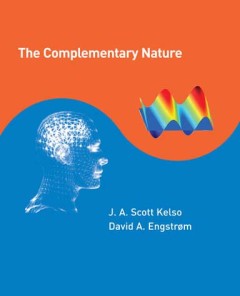
The Complementary Nature
"A Bradford book."Why do we divide our world into contraries? Why do we perceive and interpret so many of life's contraries as mutually exclusive, either/or dichotomies such as individual~collective, self~other, body~mind, nature~nurture, cooperation~competition? Throughout history, many have recognized that truth may well lie in between such polar opposites. In The Complementary Nature, Scott …
- Edition
- -
- ISBN/ISSN
- 9780262316286
- Collation
- 1 online resource (xviii, 317 pages) :illustrations
- Series Title
- -
- Call Number
- -
 Computer Science, Information & General Works
Computer Science, Information & General Works  Philosophy & Psychology
Philosophy & Psychology  Religion
Religion  Social Sciences
Social Sciences  Language
Language  Pure Science
Pure Science  Applied Sciences
Applied Sciences  Art & Recreation
Art & Recreation  Literature
Literature  History & Geography
History & Geography